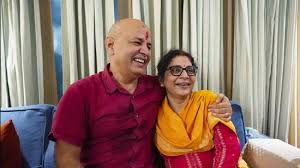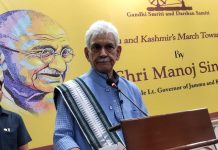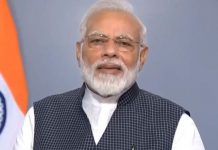While granting bail to former Delhi Dy CM Sisodia after 17-month-long incarceration, the Supreme Court observed that it is high time that the trial courts and the high courts should recognize the principle that “bail is rule and jail is exception”. A report by Mudit Mathur

After 17-month-long incarceration, the Supreme Court of India at last granted bail to former Deputy Chief Minister of Delhi and Aam Aadmi Party leader Manish Sisodia, lamenting that trial courts and high courts in the country have forgotten the principle that ‘bail is the rule, jail an exception’ and attempt to play safe. The Court observed that to ensure the right to a fair trial, an accused cannot be denied the right to have an inspection of prosecution documents, including the un-relied upon documents. The Court allowed the bail applications filed by Sisodia in both the CBI and ED cases considering the delay in commencing the trial in the liquor policy case.
The bench of Justices B.R. Gavai and K.V. Viswanathan observed, “Over a period of time, the trial courts and the High Courts have forgotten a very well-settled principle of law that bail is not to be withheld as a punishment. From our experience, we can say that it appears that the trial courts and the High Courts attempt to play safe in matters of grant of bail. The principle that bail is a rule and refusal is an exception is, at times, followed in breach. On account of non-grant of bail even in straight forward open and shut cases, this Court is flooded with a huge number of bail petitions thereby adding to the huge pendency. It is high time that the trial courts and the High Courts should recognize the principle that “bail is rule and jail is exception”.
“It is to be noted that there are around 69,000 pages of documents involved in both the CBI and the ED matters. Taking into consideration the huge magnitude of the documents involved, it cannot be stated that the accused is not entitled to take a reasonable time for inspection of the said documents. In order to avail the right to fair trial, the accused cannot be denied the right to have inspection of the documents including the “un-relied upon documents,” said the bench.
The finding that an accused must be allowed inspection of Un-relied Upon Documents to ensure free trial deems significance in the context of allegations levelled in Manish Sisodia’s and Arvind Kejriwal’s cases that ED put certain documents in Un-relied Upon Documents and withheld exculpatory material.
Stressing on Sisodia’s long incarceration of about 18 months, and the delay in trial occasioned despite an assurance given by Solicitor General Tushar Mehta on June 4, 2024 that investigation would be concluded and chargesheet filed by July 3, the Court remarked that relegating Sisodia back to the trial Court and the High Court (as suggested by ASG SV Raju) would amount to putting him through a game of snakes and ladders.
“In the present case, 493 witnesses have been named. The case involves thousands of pages of documents and over a lakh pages of digitalized documents. It is thus clear that there is not even a remotest possibility of the trial being concluded in the near future. In our view, keeping the appellant behind the bars for an unlimited period of time in the hope of speedy completion of trial would deprive the fundamental right to liberty under Article 21 of the Constitution,” the Bench observed.
“As observed time and again, the prolonged incarceration before being pronounced guilty of an offence should not be permitted to become punishment without trial,” the Bench held.
Arguing the third round of bail application on the merits of the case, senior Advocate Dr.Abhishek Manu Singhvi, appearing for Sisodia, submitted that this Court, vide its first order dated 30th October 2023, has given various findings in favour of the appellant. It is submitted that a perusal of the same would clearly reveal that at a number of places, this Court has given findings that would show that the respondents have not been in a position to make out a prima facie case.
Dr Singhvi further submitted that a perusal of the record would reveal that even the investigation in the case is not complete. He therefore submitted that unless the investigation is complete, the trial cannot proceed. He submitted that three more supplementary complaints have been filed on 10th May 2024, 17th May 2024, and 20th June 2024 in the ED matter, and as on 27th July 2024, 40 persons have been arrayed as accused in the proceedings with more than 8 complaints.
He further submitted that, in the ED matter, the ED has cited 224 witnesses and produced 32,000 pages of documents. He further submitted that, in the CBI matter, the CBI has cited 269 witnesses and produced around 37,000 pages of documents. It is therefore submitted that in all there are 493 witnesses, excluding the ones in the 4th Supplementary Charge-sheet filed by the CBI, who will have to be examined and that in total the documents are running into around 69,000 pages.
Dr. Singhvi submitted that the ED has deliberately concealed the documents it acquired during investigation by putting documents exculpating the accused persons in the category of “un-relied upon documents”. It is submitted that, as such, it was necessary for the appellant to inspect such “un-relied upon documents”. He further submitted that there was an inordinate delay on the part of the ED and the CBI in producing the list of “un-relied upon documents”.
Dr. Singhvi submitted that, taking into consideration the voluminous number of witnesses and documents, there is no possibility of the trial seeing the light of the day and therefore the appeals filed by the appellant deserve to be allowed.
Earlier, the same bench of the Supreme Court of Justices B.R. Gavai and KV Viswanathan did not interfere in the challenge to Jharkhand High Court orders granting bail to former Jharkhand Chief Minister Hemant Soren in a case related to money laundering in a land scam and dismissed the Enforcement Directorate’s plea challenging it. He was arrested by the Enforcement Directorate on January 31 on accusations of manipulating records with fictitious transactions and using forged documents to acquire land. Soren resigned as the Chief Minister after ED’s arrest on the same day.
Shiv Sena (Uddhav Balasaheb Thackery) MP Sanjay Raut and his close aide Pravin Raut were also released on bail after a special court under the Prevention of Money Laundering Act (PMLA) in Mumbai granted him bail and the Bombay High Court refused to grant a stay against the bail orders. In its detailed 122-page order, special judge MG Deshpande held their arrest as “illegal”. Sanjay Raut was arrested on August 1, 2023, under the Prevention of Money Laundering Act (PMLA) in connection with alleged financial irregularities in the re-development of the Patra ‘chawl’ in sub-urban Goregaon.
“Basically, there was no reason nor any occasion to arrest both of them (Sanjay Raut and co-accused Pravin Raut)….for the allegations which are basically nothing but a civil dispute,” the court held, while also slamming the ED for not taking its cases to the logical conclusion. The court allowed bail to Shiv Sena leader Sanjay Raut and his close aide Pravin Raut.
Amid many cases before the court containing allegations of misuse of the Enforcement Directorate motivated by political vendetta, a special bench of the Supreme Court comprising Justices Surya Kant, CT Ravikumar, and Ujjal Bhuyan will hear petitions seeking a review of the 2022 judgment in Vijay Madanlal Choudhary versus Union of India case in the open court on 28th, August. In this case, the apex court had upheld the various provisions of the Prevention of Money Laundering Act (PMLA) relating to arrest, search, seizure, bail etc. The lead review petition was filed by Congress MP Karti P Chidambaram.












